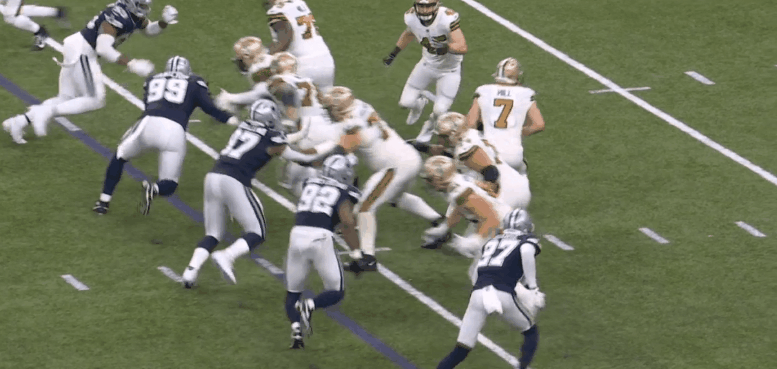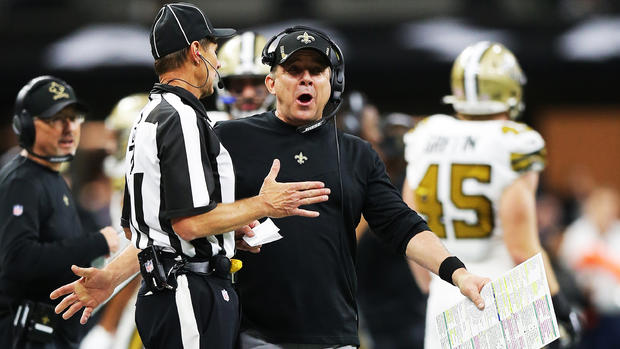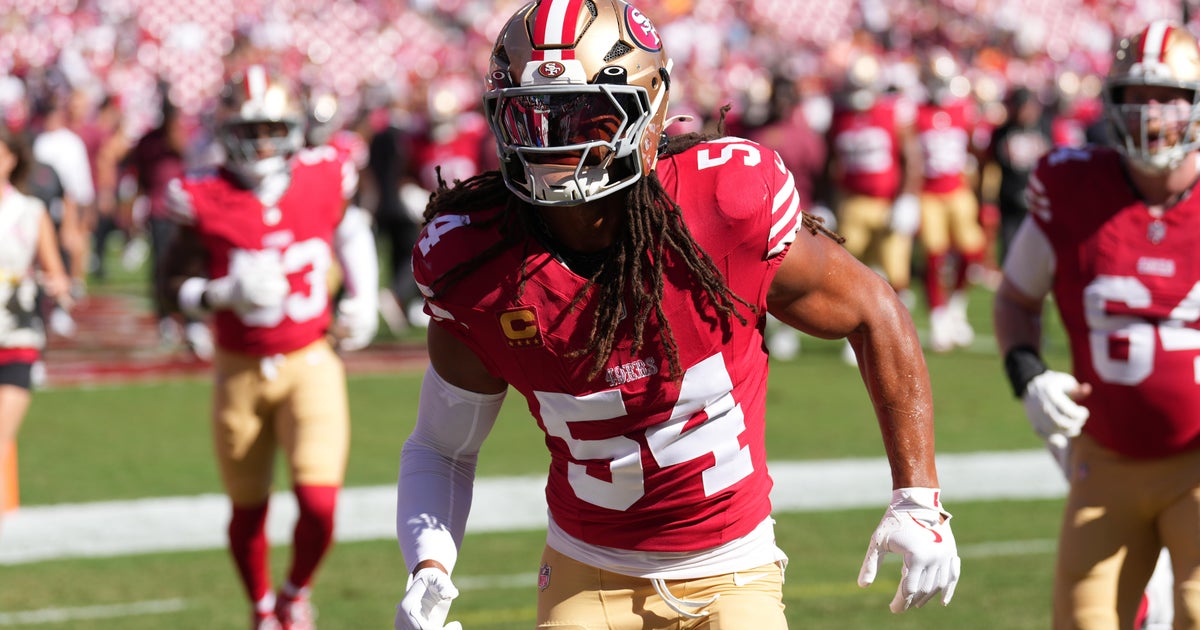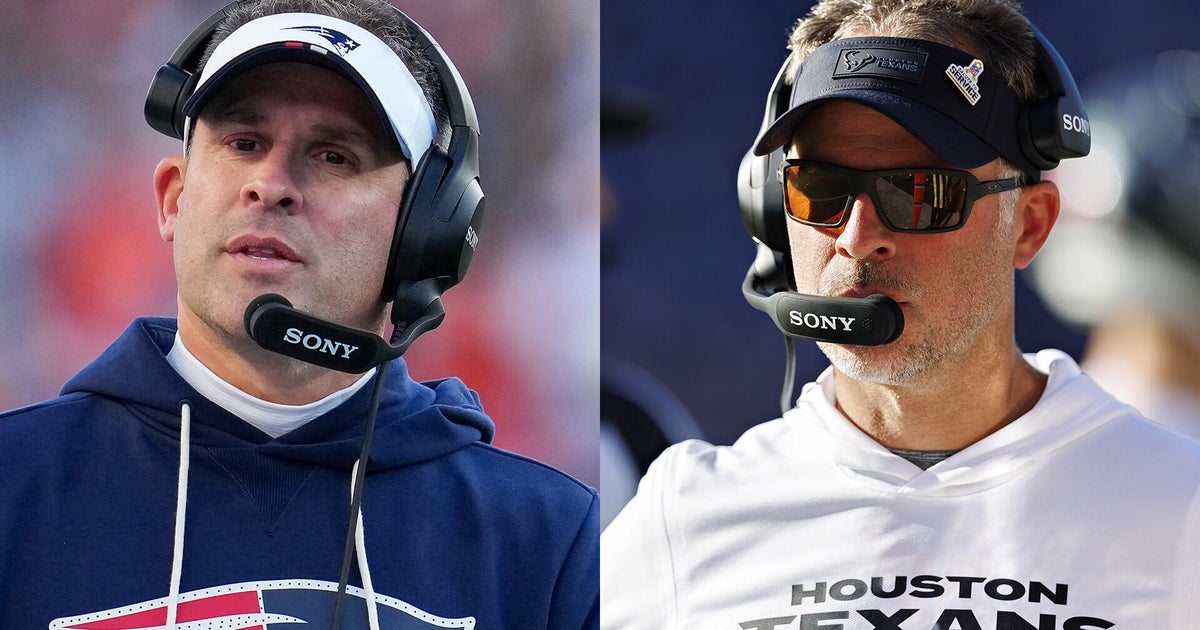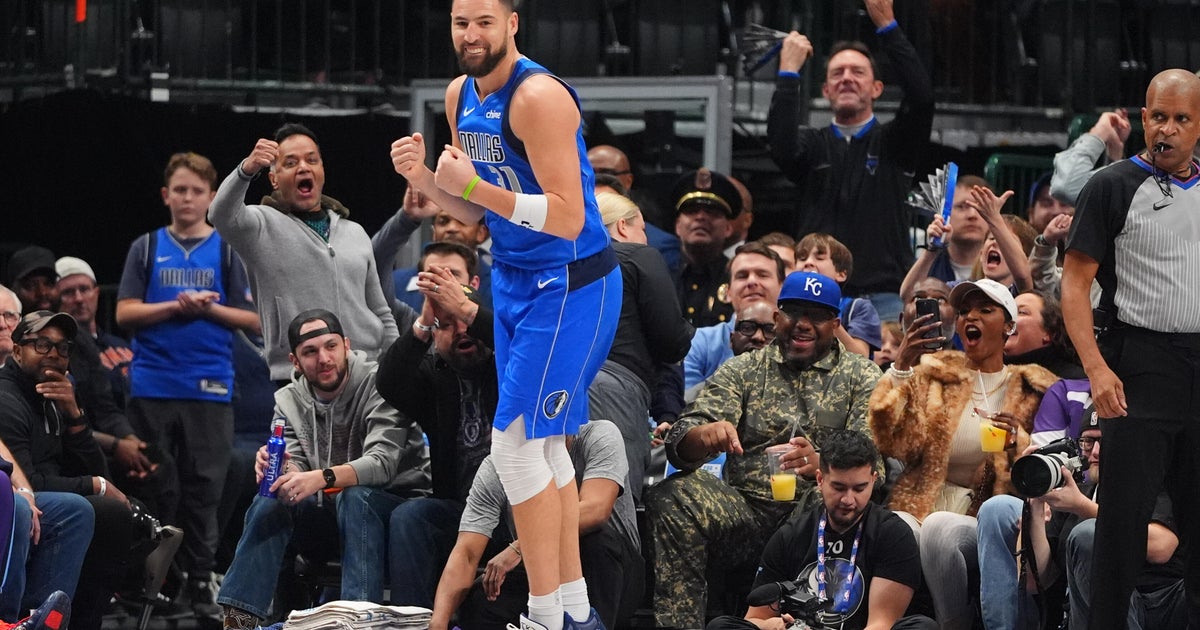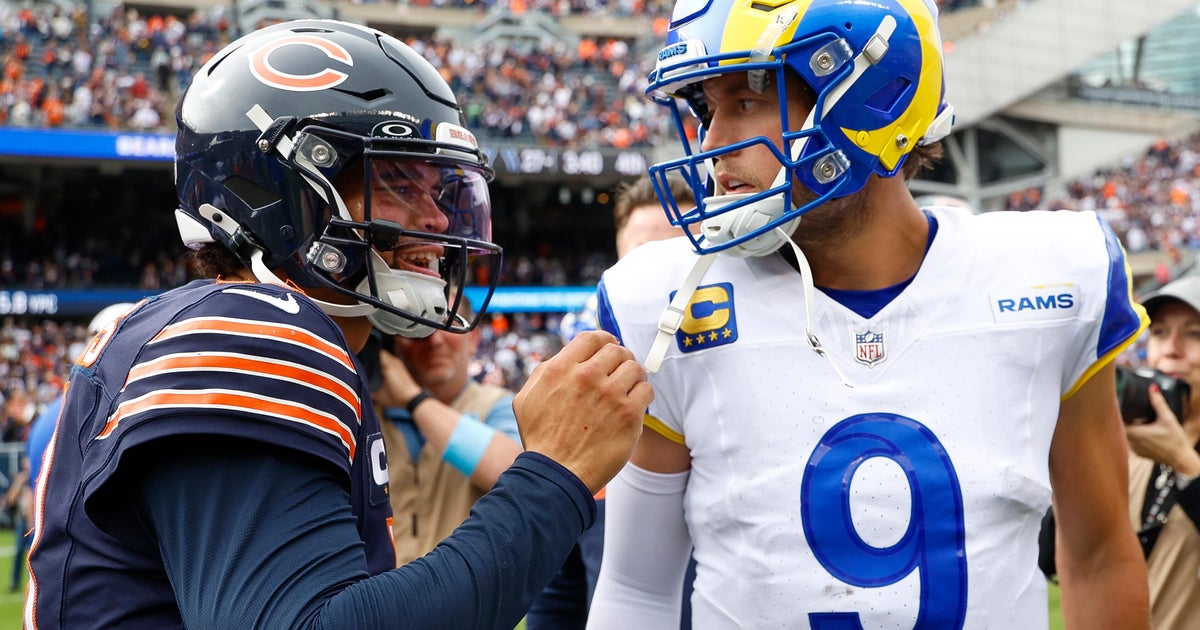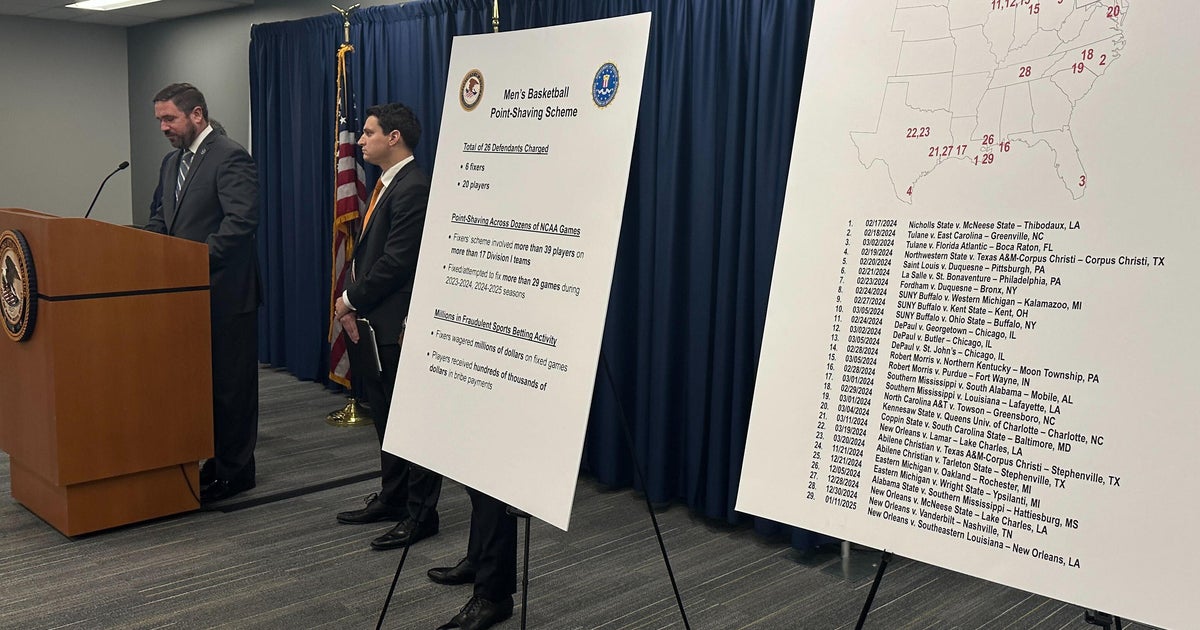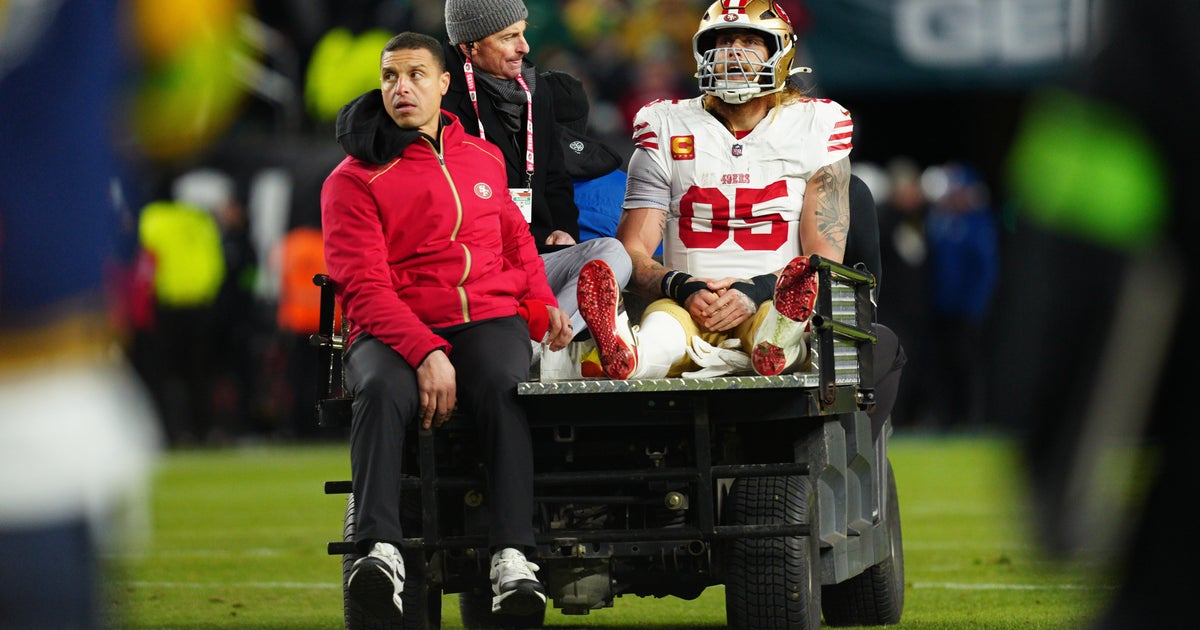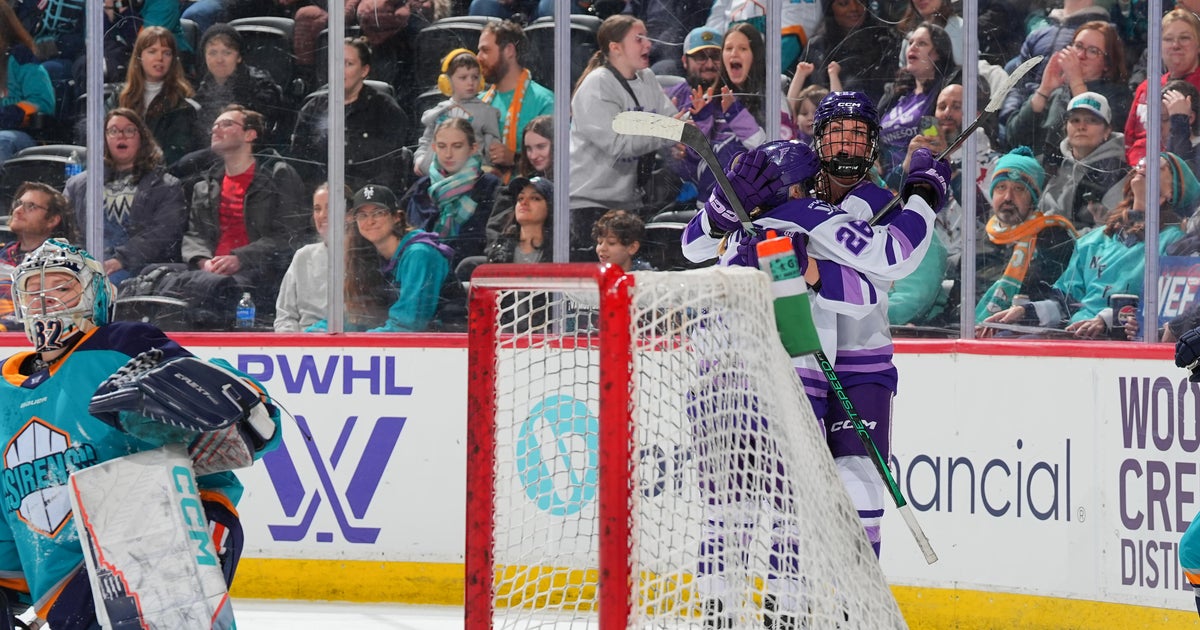NFL's Foolish 'Blindside Block' Rule Rears Its Ugly Head In Saints-Cowboys Thursday Night Game
By Michael Hurley, CBS Boston
BOSTON (CBS) -- There was a point in Thursday night's broadcast that Troy Aikman couldn't help but give some extended praise to the officiating crew for the work those men in stripes were doing during the game between the Cowboys and the Saints. At another point, though, the praise ended abruptly.
"That's a terrible call. I don't blame Sean Payton [for being upset] -- just a terrible call," Aikman said. "All the love we've given these guys all night, that's awful."
Aikman was right in spirit. But in terms of the actual rule book, he was dead wrong. And that's the problem.
The call in question came midway through the third quarter, when tight end Garrett Griffin came across the backfield to block Dallas safety Jayron Kearse. In making that block, Griffin gave Taysom Hill the time needed to complete an 11-yard pass to Deonte Harris.
The block looked ... like a block. Like a block made 10 million times before on every field that's held a football game in the history of the sport. It was ... a block.
Alas, by the letter of the law, it was illegal.
So, in a three-point game, instead of a first-and-10 at the 32-yard line, the Saints faced a first-and-21 at their own 10-yard line. They'd end up punting. Dallas scored on the next possession, stretching the lead to 10 points.
In 2019, the league instituted a specific rule banning "blindside blocks." The term "blindside" is an absolute misnomer, though, as the rule bans all blocks made when a player is moving parallel to the line of scrimmage or back toward his own goal line.
The idea behind the rule is sound. Too often, defensive players in pursuit of a tackle would get blown up by receivers making violent blocks on unsuspecting players. In the name of player safety, forcing those offensive players to simply get in the way of defensive players instead of lighting them up is a worthwhile endeavor. (Last week, you saw Patriots receiver Jakobi Meyers showing the ideal scenario that the league envisioned when implementing this rule.)
The problem is that this rule is implemented in ways that simply boggle the mind -- or worse. Saints head coach Sean Payton was sent into a state of delirium by this particular call on Thursday night. He could be seen shouting, "What are you talking about?!" after the call was made, and he remained ... testy with the officiating crew for the remainder of the evening.
"I'm not real familiar with that type of block on that situation," a diplomatic Payton said after his team's 27-17 loss. "It is unfamiliar."
It's hard to blame him. But again ... the rule was enforced correctly. Which is ridiculous.
The exact letter of the law is this: "It is a foul if a player initiates a block when his path is toward or parallel to his own end line and makes forcible contact to his opponent with his helmet, forearm, or shoulder."
There is an exclusion of "blindside blocks" that take place in "close-line play," which is generally regarded as "within the tackle box." Griffin's blocks might have been made right on the edge of that line. If it was within the tackle box, then the rule was improperly applied.
The problem is ... nobody involved seemed to know what was going on at all. That's the indication that a rule might not be excellent.
By the books, the way Gilbert could have avoided drawing a flag would have been to run over, arms extended, while offering a shove instead of a blow with his helmet. But ... Gilbert did run across the formation with his arms extended. He did lead with his head a bit, but it's not exactly an easy thing to play the game at 100 mph while keeping your head from propelling forward ahead of your body.
And that's ... kind of the issue.
Certain football luminaries saw this rule as being a problem as soon as it was introduced. When it was called during a Patriots preseason game in 2019, the triumvirate of Julian Edelman, Tom Brady and Bill Belichick -- three guys who know a few things about football -- struggled to understand what had just happened.
Anyone who's been around football for 15 minutes understands that the "blindside blocks" are not blindside blocks at all. Nevertheless, the rule remains on the books.
The first implementation of this rule was equally as perplexing, when an offensive lineman was penalized for blocking a pass rusher in the backfield.
The Patriots lost a touchdown on a punt return last year, too, because of the "blindside" rule:
None of these plays involve anyone getting hit from their "blindside." Yet all were violations of the blindside block rule.
In terms of fixing it, that should start with a new name. When the words "blindside block" are uttered by a referee, very few football fans (or commentators ... or head coaches) can wrap their heads around the concept. Because ... the plays rarely involve anything related to the blindside. Coming up with a succinct solution may be a challenge ("illegal block while moving parallel to the line of scrimmage or back toward a player's own end zone" is a real mouthful), but it would go a long way in clearing up much of the confusion that ensues when the penalty is enforced.
Secondly, removing the rule in the backfield would be wise. Forget the "close-line play" language; if the block comes while protecting a quarterback, there's no "blindside" penalty on the table.
Think about it: If Griffin doesn't make that block, then Hill gets hit. How does penalizing a block promote player safety, when the alternative leads to the quarterback getting hit? Feels like a case of cutting off your nose to spite your face, because the end result is a bad penalty that offends literally everybody involved -- either as a player or coach, or just as a neutral observer.
Perhaps a qualifier that says it's not a "blindside block" if the two players are staring at each other the whole time would help remove a lot of the unnecessary calls.
Whatever the case may be, the rule needs to be fixed. It's been senseless and stupid from the moment it came into the league, but nothing's changed about it. Maybe -- hopefully -- a high-profile call in a nationally televised game might finally bring about some much needed change.
You can email Michael Hurley or find him on Twitter @michaelFhurley.
